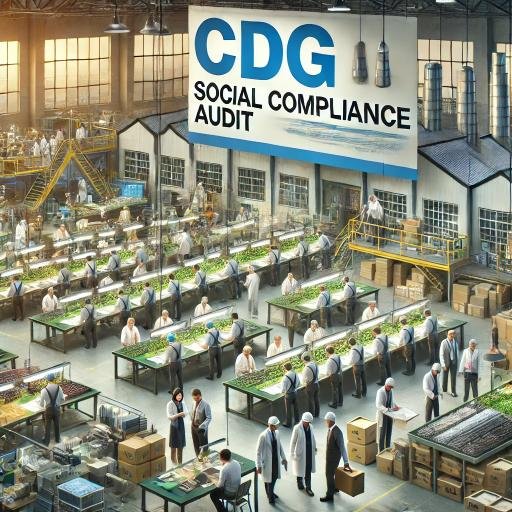How Can Companies Maintain Continuous Social Compliance? A Guide to Ethical and Sustainable Business Practices
In today’s fast-paced and interconnected world, maintaining social compliance is not just a one-time task—it’s an ongoing commitment to ethical business practices. For companies operating in global markets, ensuring continuous social compliance is crucial for protecting their reputation, avoiding legal risks, and building trust with customers and stakeholders. But how can companies ensure that they remain compliant over the long term?
Introduction: The Importance of Continuous Social Compliance
Social compliance refers to a company’s adherence to laws, regulations, and ethical standards that govern labor rights, workplace safety, environmental impact, and fair business practices. While many companies undergo social compliance audits to assess their practices, the challenge lies in maintaining compliance consistently. Continuous social compliance requires more than just passing an audit—it demands a proactive approach to monitoring, improving, and sustaining ethical practices throughout the organization and its supply chain.
At CDG, we specialize in helping companies achieve and maintain social compliance through comprehensive audit services and ongoing support. In this blog post, we’ll explore practical strategies that companies can implement to ensure continuous social compliance, offering insights and real-world examples to guide your efforts.
Steps to Maintain Continuous Social Compliance
Achieving continuous social compliance involves a combination of proactive management, regular monitoring, employee engagement, and supplier collaboration. Here are the key steps companies can take to maintain ongoing compliance:
1. Develop a Strong Social Compliance Program
The foundation of continuous social compliance is a well-developed and comprehensive compliance program. This program should outline your company’s commitment to ethical practices and provide a clear framework for maintaining compliance.
- Create Clear Policies and Procedures: Develop detailed policies and procedures that address key areas of social compliance, such as labor rights, health and safety, environmental practices, and anti-corruption measures. Ensure these policies are aligned with local and international standards.
- Establish a Compliance Team: Appoint a dedicated team responsible for overseeing social compliance efforts. This team should include representatives from different departments, such as HR, legal, procurement, and operations.
Practical Tip: Regularly review and update your compliance program to reflect changes in regulations, industry standards, and best practices. This ensures that your company remains aligned with current expectations.
2. Conduct Regular Audits and Assessments
Regular audits are essential for identifying potential compliance issues and ensuring that your company’s practices meet required standards. However, audits should not be seen as a one-time event but as part of an ongoing process of monitoring and improvement.
- Schedule Internal Audits: Conduct internal audits on a regular basis to assess compliance with your company’s policies and procedures. These audits can help identify areas for improvement before external audits take place.
- Engage in External Audits: In addition to internal audits, consider scheduling external audits conducted by third-party auditors like CDG. These audits provide an objective assessment of your company’s compliance and can help build trust with stakeholders.
Example: A manufacturing company might schedule quarterly internal audits to review safety protocols and employee working conditions, followed by an annual external audit to ensure compliance with international labor standards.
3. Implement Continuous Monitoring Systems
Continuous monitoring is critical for maintaining social compliance over time. By implementing systems that track key compliance metrics, companies can quickly identify and address any issues that arise.
- Use Compliance Software: Invest in compliance management software that allows you to monitor key indicators, such as working hours, wage payments, safety incidents, and environmental impact. These tools can automate data collection and reporting, making it easier to stay on top of compliance issues.
- Establish Reporting Mechanisms: Create channels for employees, suppliers, and other stakeholders to report potential compliance concerns. This could include anonymous hotlines, suggestion boxes, or online reporting tools.
Real-World Application: A tech company might use compliance software to monitor working hours and overtime across its global supply chain, ensuring that all suppliers adhere to labor laws and preventing issues like worker exploitation.
4. Engage and Educate Employees
Employees play a crucial role in maintaining social compliance. By engaging and educating your workforce, you can foster a culture of responsibility and ensure that everyone understands their role in upholding ethical practices.
- Provide Regular Training: Offer training sessions on social compliance topics, including labor rights, workplace safety, anti-corruption, and environmental practices. Tailor the training to different roles within the company to ensure relevance.
- Promote a Culture of Compliance: Encourage a culture where compliance is seen as a shared responsibility. Recognize and reward employees who contribute to maintaining ethical standards, and encourage open communication about compliance issues.
Practical Tip: Incorporate social compliance training into the onboarding process for new employees, ensuring that everyone is aware of the company’s expectations from day one.
5. Collaborate with Suppliers and Partners
Social compliance extends beyond your company’s operations to include your entire supply chain. To maintain continuous compliance, it’s essential to work closely with your suppliers and partners to ensure they adhere to the same standards.
- Set Clear Expectations: Communicate your social compliance expectations to all suppliers and partners, and include these requirements in contracts and agreements.
- Conduct Supplier Audits: Regularly audit your suppliers to ensure they meet your social compliance standards. This may involve on-site visits, document reviews, and interviews with workers.
Example: A retail company might collaborate with its suppliers to improve factory working conditions, providing training and resources to help them meet social compliance standards.
Building a Sustainable Compliance Strategy
Maintaining continuous social compliance is a dynamic and ongoing process that requires commitment, vigilance, and collaboration. By developing a strong compliance program, conducting regular audits, implementing monitoring systems, engaging employees, and working with suppliers, companies can ensure that they remain compliant with ethical standards over the long term.



